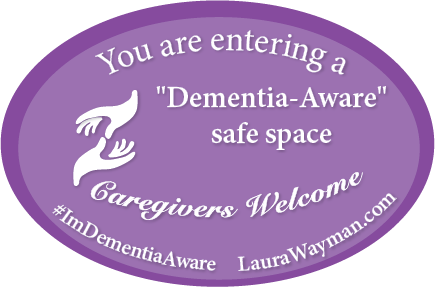As you’re probably aware, individuals with Alzheimer’s disease or who are showing dementia symptoms require very specialized care. That’s why I’ve spent the
last two decades working to raise dementia awareness among both family members and professional caregivers who regularly interact with the memory impaired. I like to consider myself a pioneer of dementia aware training programs and services across the United States, and I invite you to join me.
You may be wondering what it means to be “dementia aware.” It can be broken down into several principles.
Understanding the cause: There are many different causes of dementia, and this means there are many different experiences that come along with both living with it and caring for someone who is. There is a wide range of symptoms, including loss of the ability to process the world around themselves, confusion, sudden mood changes and memory loss. Many of these symptoms can go unrecognized at first and staying vigilant about monitoring symptoms can lead to an earlier diagnosis. This benefits everyone involved to develop effective care strategies unique to their experience.
Knowing how to respond: It can certainly be challenging to communicate with someone experiencing memory impairment, but having the correct strategies to use can increase the likelihood of positive outcomes. A huge factor in this are the cues that the memory impaired pick up on to determine if they should feel safe or not, including your tone of voice, body language and attitude. If they feel that they can relate to you, this opens up the channels of communication and leads to a foundation of one of the most important values in caregiving; trust.
Providing support to relatives and loved ones: It can be easy to forget how much dementia impacts more than just the person who is diagnosed with it. However, dementia has a ripple effect on our communities because of the stress and anguish it places on caregivers. Seeing someone you love slowly deteriorate is difficult, whether you’re a professional caregiver or a family member. You don’t have to walk this path alone.
Because research continues to evolve, and the senior care industry is growing rapidly, it’s important for caregivers to remain vigilant in education and understanding of dementia. With the right skills and knowledge, we can work together to provide high-quality care at every stage of memory loss. This leads to an informed, sensitive and effective caregiving workforce and, most importantly, makes those living with dementia feel loved and valued while remaining active and engaged for as long as possible.
Watch the rest of this topic here and be sure to join me on my Facebook page every Friday at 1 p.m. (PST) for a new Facebook Live seminar that focuses on a different topic each week.


